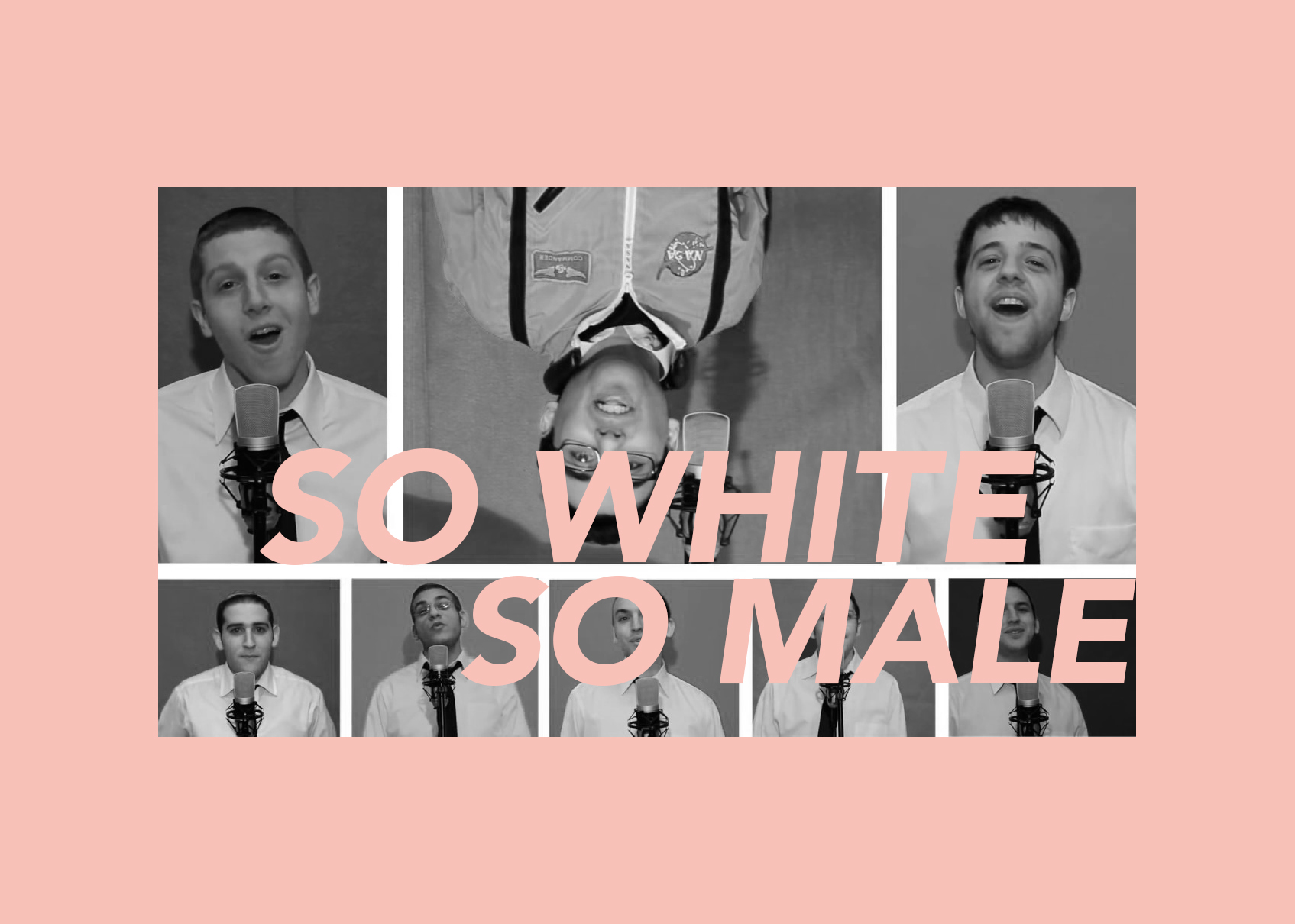It’s been quite a few Hanukkahs since I started working in Jewish media, and therefore keeping an eye on the yearly onslaught of Jewish a capella music that comes out this time of year. They typically come in the form of holiday-themed parodies of popular songs (like this year’s smash hit parody of “Bohemian Rhapsody.” This year, I’ve written about so many new and old songs, I can fancy myself an expert in the genre.
I love that these videos help people get excited about the Jewish holidays, and I know I’m not the only one who still has the lyrics of the Maccabeats’ “Candlelight” stuck in her head eight years after its release.
But one thing has been driving me crazy about these videos (I even wrote about it way back in 2015): they’re pretty much always a bunch of white men singing — no women, no Jews of color. Rabbi Sari Laufer also seems to be irked by this:
I think I am a Debbie Downer here, but this has been my stock response to everyone who has sent me the Bohemian Chanukah video: It is great. But just once I wish one of these viral videos would come from a co-ed group, or one that would permit a woman to sing. #copypaste
— Rabbi Sari Laufer (@rabbilaufer) December 4, 2018
As a commenter on her tweet said, most of these bands are Orthodox, and that is their tradition — not to feature a woman’s voice. If you grew up in a more liberal stream of Judaism, you may not know that in many Orthodox communities, men aren’t allowed to hear women sing because of a Jewish law named kol isha.
And sure, that’s fine. But Orthodox Judaism is just not representative of the full spectrum of Jewish existence — and it certainly isn’t reflective of the many Jews listening to these parodies.
Now, there are a couple of outliers in this here tale. Listen Up! has one female member, and Fountainheads, which is not exactly an a cappella group, features a lot of dancing and singing with female Jewish voices.
Then, there’s Yonina, an Israeli husband and wife making beautiful music together, who just released this moving version of the classic Hanukkah song Ma’oz Tzur (Rock of Ages).
There are a couple of other notable Hanukkah contributions by women — like MC Flow’s hilarious “Pot in the Latkes” and the talented Sarah Aroeste’s “Bimuelos,” featuring Kosha Dillz, which is probably the only non-Ashkenormative Hanukkah video out there I’ve been able to find.
But that’s hardly enough. None of these videos reach the viral levels of the Maccabeats or Six13, and few have their production values.
Of course, there is no shortage of iconic Jewish American female singers, from Barbra Streisand to Pink. And of course, so many of the modern Jewish melodies played in reform synagogues throughout America can be traced back to the inimitable Debbie Friedman. There’s also a wealthy tradition of women cantors.
As for Jews of color, we have the incredible Lenny Kravitz as a member of the tribe as well as Canada’s favorite rapper, Drake. And there’s Anthony Russell, who makes gorgeous operatic tunes that are deep and spiritual.
In Israel, there are amazing musicians like Ester Rada and Stephane Legar (who, while not Jewish, has become a quintessential part of Israeli pop music), not to mention a thriving industry of Mizrahit (literally Eastern) music.
So we know we are a diverse and musically-gifted tribe! It’s time for that to show in our viral Hanukkah music. It’s time for us to show ourselves and the rest of the world that it’s not only white men who can create funky Hanukkah ditties out of whatever this year’s most popular pop song is.
But I don’t want to just kvetch. I’d like to lift the gauntlet. Here at Alma, we are, after all, a publication for millennial Jews, women, queer and nonbinary, of all ethnicities. Let’s start something. I may not have the most amazing voice (I was part of my city’s youth band for all but a minute and a half) but I’m happy to contribute any of my skills to a more representative version of Jewish a cappella.
And while it may be too late for this year’s Hanukkah, there’s plenty of time to make a viral video by Passover!



